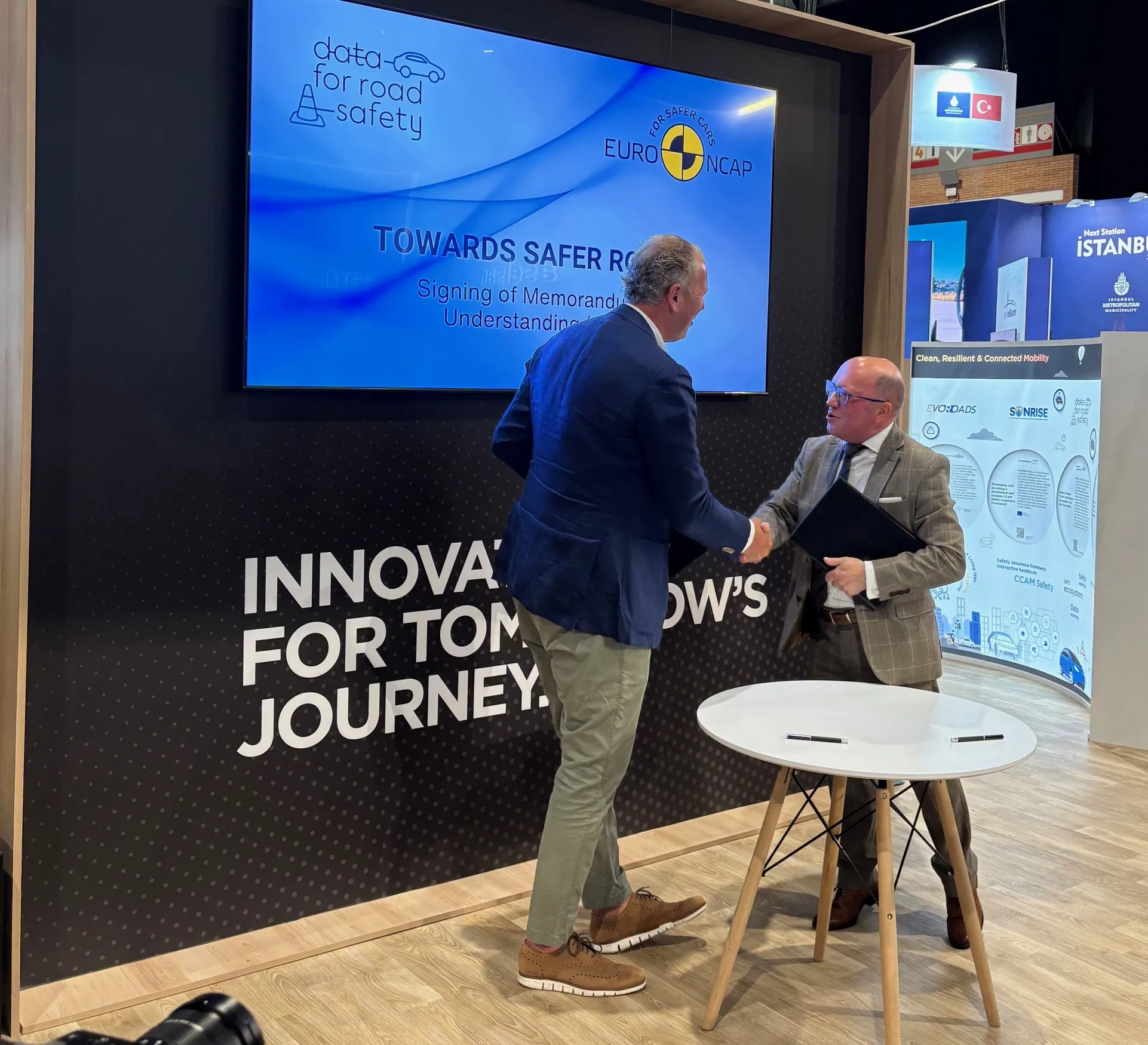
Data for Road Safety (DFRS) and Euro NCAP - the European vehicle safety performance assessment programme - signed a memorandum of understanding (MoU) during the 16th ITS European Congress 2025 in Seville.
Their collaboration aims to enhance vehicle safety assessments through the integration of real-time road hazard data.
The new Euro NCAP 2026 Protocol on Safe Driving Vehicle Assistance has introduced a requirement for vehicle manufacturers to share these hazard warnings information - and to be awarded 'points' in the Euro NCAP safety rating system for doing this.
“This exclusive collaboration between DFRS and Euro NCAP is a real first for the automotive industry and will lead to the sharing of the most up-to-date and trusted safety data from vehicle manufacturers," says Richard Schram, technical director for Euro NCAP.
"This information will be used to create Local Hazard warnings as well as playing a vital role in our new 2026 testing protocols leading to long-term benefits for the safety of all European road users.”
Joost Vantomme, CEO of Ertico - ITS Europe and chair of the DFRS General Assembly ecosystem, comments: “DFRS is built as a cooperative platform between vehicle manufacturers, service providers, suppliers and road authorities. By enabling the trusted exchange of safety-related data, DFRS delivery a tangible contribution to the European Vision Zero with an ambition level of close to zero fatalities by 2050."
"This MoU with Euro NCAP marks a significant milestone. For the first time, data sharing for safety is part of the vehicle assessment protocol of Euro NCAP," Vantomme adds.
What does the Euro NCAP 2026 Protocol on Safe Driving Vehicle Assistance say?
The 2026 Protocol acknowledges both cloud-based and direct communication technologies as valid channels for sharing safety-relevant data.
The Protocol states: “Cloud communication is foreseen to happen via mobile network. The reference cloud for this communication channel is the DFRS ecosystem. Direct Communication is foreseen to happen via direct short range communication standards (e.g., Wi-Fi ITS-G5 or C-V2X). The Vehicle Manufacturer shall self-declare fulfilment of the direct short range communication standards and demonstrate interoperability with C-ROADS deployment (where applicable).”
The Protocol also says that a combined cloud and direct communication approach maximises road safety.
For each Local Hazard covered by the vehicle, the vehicle manufacturer is encouraged to demonstrate, by means of fulfilling the self-declaration forms developed by DFRS and Euro NCAP, that vehicle data is received, used and processed within the DFRS ecosystem. This means vehicles equipped to share and receive road safety data through the DFRS ecosystem will be eligible to score points.
"This collaboration is the result of a year-long effort between DFRS & Euro NCAP with the goal of enhancing road safety," says Mohanad Ismail, DFRS Tech Group chair.
"The remarkable progress achieved underscores the dedication of both public and private entities in addressing this critical issue. The unwavering efforts of DFRS members and Euro NCAP at both the technical and non-technical level gives me confidence that this partnership will have a profound and lasting impact on road safety."








